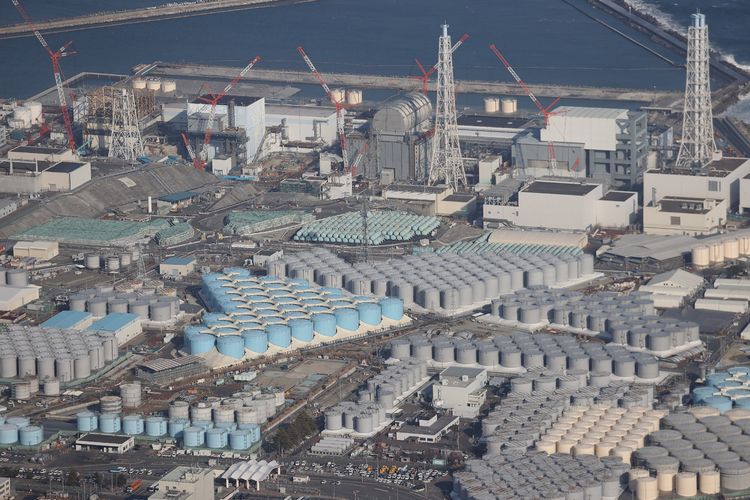UNAIR NEWS – The Japanese government’s plan to dispose of nuclear-contaminated waste has drawn criticism from several countries. Responding to this issue, Koesrianti, SH, LL.M., Ph.D, lecturer in nuclear law at Faculty of Law, Universitas Airlangga said that the disposal of contaminated waste is not allowed.
Koesrianti said that nuclear liquid waste contains dangerous active toxins. According to her, nuclear liquid waste must be treated first before being disposed of.
“The disposal cannot be anywhere, and it is not allowed to be dumped into the sea,” she said.
If it is disposed of carelessly, said Koesrianti, nuclear waste which still contains radioactivity is dangerous for the environment and humans. For safe disposal, several processes must be carried out, which can be in the form of evaporation, distillation, and filtering.
“In other words, the waste is recycled, separated between particles that contain radioactive and those that do not,” she said.
If the radioactive substances have been recycled and separated, the waste from the Fukushima nuclear power plant (PLTN) reactor can be dumped into the sea.
“But it is not just the Fukushima nuclear power plant that dispose of it, but it must be under the supervision of the Japanese and international nuclear power supervisory agency or AIEA,” explained Koesrianti.
The international agency that supervises radioactive waste or the International Atomic Energy Agency (AIEA) also takes part in making decisions besides supervision from national agencies in Japan.
“Radioactive waste has its categories, there are low, medium, and high,” she said.
Koesrianti explained that Indonesia has its own rules for treating each category of waste. Supposedly, Japan is not that different either.
The treated waste can be returned to the country of origin or sent to a waste management and regulatory agency which must be ensured that it is safe to dispose of into the sea.
“If it has been recycled, separated from the radioactive substance, the water left can be disposed of into the sea,” explained Koesrianti.

Radioactive substance limits
According to Koesrianti, there are limits of radiation exposure with reference to the regulations from the AIEA. For the management of radioactive substances, it can be done by mixing with cement. This management is for easy storage because it takes thousands of years to decompose.
“The storage place must also be safe so as not to harm humans and damage the environment,” said Koesrianti.
According to Koesrianti, many countries opposed Fukushima’s disposal due to the communication factor. “The communication did not arrive. Japan has not explained whether the waste still contains radioactive substances or not. Apart from that related to Fukushima, the trauma still remains. People are still sensitive to Fukushima in 2011, ” she continued.
According to her, it is necessary to provide information in accordance with the proportions because the explanation on the results of radioactive waste processing is still ambiguous.
“We are also confused about what to say, waste from waste or what, because the waste (disposed water, ed) must have had their radioactive substances removed,” she concluded.
As the best university in Indonesia, UNAIR supports the entire academic community to develop themselves so that they can contribute to the wider community. (*)
Author: Tata Ferliana W.
Editor: Binti Q Masruroh





